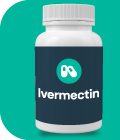GET PREPARED
Customize your Jase Case
Get ready for medical emergencies that fit you and your interests perfectly . Learn More.

Symptoms & Scenarios
Simple, ready-to-use med kits

Parasites
Compounded Ivermectin + Mebendazole

Jase Go
When getting sick isn't in your travel plans

UTI
Pain relief & urinary tract infection

Ivermectin
Now offered as a standalone item

Seasonal Allergies
On-hand meds for fast allergy relief

Cruise
Motion sickness and diarrhea
Gout
On-hand meds for fast gout relief
Dental
Be prepared for infections that lead to over 2 million ER visits a year

KidCase
Emergency medication supply for kids

MissionCase
No matter the calling, keep your missionary safe
STAY PREPARED
Jase Daily
12-month supply of your current daily prescription medications. Learn More.

GET PREPARED









Customize Your Jase Case
Get ready for medical emergencies that fit you and your interests perfectly Learn more

Symptoms & Scenarios
Simple, ready-to-use med kits that fit your most common UseCases™.

Parasites
Compounded Ivermectin + Mebendazole
KidCase
Emergency medication supply for kids
Gout
On-hand meds for fast gout relief
Cruise
Motion sickness and diarrhea
Dental
Be prepared for infections that lead to over 2 million ER visits a year
UTI
Pain relief & urinary tract infection
Jase Go
When getting sick isn't in your travel plans